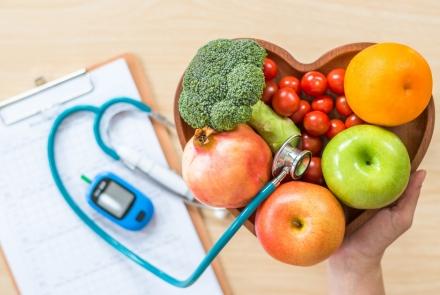An infectious disease doctor shares advice on how to avoid this highly contagious virus
NYACK, NY – December 18, 2024 – New York health officials are investigating stomach bugs sweeping Long Island and New York State, including the highly contagious norovirus. Each year, about 2,500 norovirus outbreaks are reported in the United States. Norovirus outbreaks are most common from November to April. Dr. Azfar Chak, Chief of Infectious Diseases at Montefiore Nyack Hospital, offers expert advice on how to avoid this highly contagious virus that causes gastroenteritis (inflammation of the stomach and intestines).
Norovirus symptoms include nausea; vomiting, especially in children; diarrhea; abdominal pain or cramping; mild fever (not always present); headache; muscle aches; and fatigue. Symptoms of norovirus typically appear 12 to 48 hours after exposure to the virus and last 1-3 days. Some individuals may experience lingering fatigue for a longer period. Hydration and rest are key to recovery. Since there is no specific antiviral medication to treat norovirus, treatment mainly focuses on relieving symptoms. The most critical treatment is staying hydrated.
Norovirus is commonly spread through contaminated food, water or person-to-person contact.
- Contaminated Food or Water: Consuming food or drink contaminated with the virus, often through improper food handling or contaminated water sources.
- Person-to-Person Contact: Close contact with infected individuals, such as shaking hands or caring for an ill person.
- Surface Contamination: Touching surfaces or objects contaminated with the virus (e.g., doorknobs, countertops, and shared items).
- Airborne Transmission: Small droplets from vomiting or diarrhea may spread the virus to nearby individuals.
- Good hand hygiene and safe food handling are the most effective ways to reduce the risk of infection.
- Wash hands frequently with soap and water, especially after using the toilet and before handling food.
- Use hand sanitizer with at least 60% alcohol if soap and water are unavailable.
- Cook seafood thoroughly (e.g., oysters).
- Avoid consuming raw or undercooked food that may be contaminated.
- Wash fruits and vegetables well.
It’s important to drink lots of fluids including water, oral rehydration solutions or clear broths, since vomiting and diarrhea can lead to dehydration. Avoid sugary drinks or caffeine, as they can worsen dehydration. In severe cases, intravenous fluids (IV) may be required in a healthcare setting.
“We strongly recommend seeking medical attention if one becomes dehydrated due to significant diarrhea. Dehydration symptoms can include fatigue, confusion and excessive thirst, as well as bloody stools or abdominal pain and diarrhea that may last more than two days. Other dehydration symptoms include an inability to keep food or liquid down or urinate,” says Dr. Chak. “Additionally, some patients within the population may be vulnerable to more severe dehydration symptoms, such as people with a compromising immune system or the pediatric population.”
Individuals infected with norovirus should stay home until at least 48 hours after symptoms subside. To prevent spreading the virus, clean and disinfect surfaces with bleach-based products, particularly in bathrooms and kitchens. Some people may use over-the-counter medications to manage symptoms, though they are not recommended for children or in severe cases as they can prolong the infection. Get plenty of rest as it will help the body recover more quickly.



 Upcoming Events
Upcoming Events



